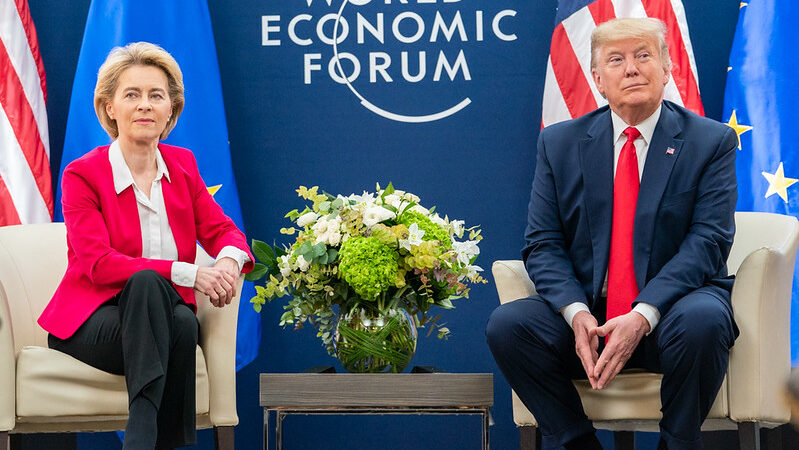
https://www.middleeasteye.net/columns/where-do-weaknesses-lie-iran-us-feud-27615304
Seyed Hossein Mousavian
Tuesday 29 January 2019
Shortly after Secretary of the State Mike Pompeo embarked on a Middle East tour to mobilise US allies to “confront” Iran, his Iranian counterpart, Mohammad Javad Zarif, tweeted that “whenever/wherever US interferes, chaos, repression & resentment follow”.
From overthrowing the democratically elected government of the late prime minister Mohammad Mosaddegh in 1953, to continuously supporting authoritarian states, to waging wars in Afghanistan, Iraq and Libya, all US interventions have led to the destruction of physical capital and democratic institutions, collateral damage, political instability, displacement and the empowerment of autocratic rulers.
Where direct military intervention may not be a viable solution, as seems to be the case with Iran, imposing illegal sanctions has been a convenient strategy for the US to exert power and project its hegemony. "America’s economic sanctions against the regime are the strongest in history, and will keep getting tougher until Iran starts behaving like a normal country,” Pompeo recently said in Cairo.
US coercion policy
From Carter to Reagan, and Bush to Obama, US presidents have long viewed sanctions as an effective means of achieving political gains with respect to Iran. Short of full-fledged military action, the US has deployed every possible coercion policy against Iran - but thus far, it has failed.
In US President Donald Trump’s era, however, these pernicious policies are being pursued most comprehensively and aggressively. A clique of notorious warmongers, including Pompeo and National Security Adviser John Bolton, have taken key policymaking positions in the Trump administration.
Representing the most radical and conservative factions of the American polity, they have mobilised all their resources not just to put pressure on the Iranian government, but also to possibly overthrow it.
The US focus is now on garnering further international support to confront Iran. It will host an international summit next month to promote stability and freedom in the Middle East, focusing on Iran’s regional influence. “We’ll bring together dozens of countries from all around the world,” Pompeo said in announcing the 13-14 February event in Poland.
Moreover, top US officials and their Arab allies in the region, along with Israel, hold regular meetings to hatch plots against Iran. This new strategy has economic, political and military dimensions. From violating the terms and conditions of the Iran nuclear deal, to impeding Iran’s European and Asian trade partners, the US has become the flag-bearer of an economic war against Iran.
Israel’s role
On the military side of this strategy, Israel has vowed to take action if necessary. Prime Minister Benjamin Netanyahu recently said Trump was “acting against Iran at the economic level, and we here in Israel are acting against Iran at the military level”. This is only part of Netanyahu’s warmongering strategy: he also invoked God to destroy the Iranian government.
Despite these collective efforts to “contain” Iran’s regional role, recent developments in the region have seemed to favour Iran, Russia and Turkey. The US and its allies waged wars in Libya, Yemen, Iraq, Syria and Afghanistan, with very mixed results.
In Lebanon, Hezbollah played a key role in the establishment of a cabinet in 2016 headed by Saad Hariri and in the appointment of Hezbollah ally Michel Aoun as president.
In Syria, Russian and Iranian support for the Syrian government undermined the US regime-change strategy and played a decisive role in preventing the country’s collapse.
In Iraq, Tehran came to Baghdad’s aid to manage a military force in the form of the 120,000-strong Popular Mobilisation Units to liberate Iraqi lands occupied by the Islamic State group (IS). In Yemen, the US and Saudi Arabia are bogged down in a costly war.
As analyst Jonathan Spyer said: “So far, the Iranians have effectively won in Lebanon, are winning in Syria and Iraq, and are bleeding the Saudis in Yemen."
Iran has been doing its best to minimise the deleterious effects of the US sanctions. Evading sanctions is an art that Iran has perfected, as Zarif said. Still, there is no doubt that the sanctions have been effectively hitting the Iranian economy.
Iran’s Achilles heel comprises the US sanctions, the US-Saudi-Israeli alliance and its confrontational strategy, and domestic economic problems, such as inflation, corruption, unemployment and political factionalism, which undermine Iran’s internal social cohesion.
Internal divisions
Containing the current political factionalism and social polarisation will be difficult, given upcoming Iranian parliamentary and presidential elections in the next two years, which may further divide the country’s social and political forces.
Meanwhile, the US domestic Achilles heel, as noted by Andy Surabian, the Republican strategist and former special assistant to Trump, is “that the next two years are going to be nonstop political war”.
On foreign policy, the major US weakness is its strategy of unilateralism, undermining international treaties, losing traditional allies and investing in palaces in the Middle East rather than nations. Pompeo's Cairo speech "praised dictators and ignored the aspirations of ordinary people. But give the secretary of state this: he was honest,” noted an analysis in Bloomberg.
In short, the US-Iran duelling over next two years will have tremendous impacts on the region’s political trajectory. In the end, there will be no winner unless all parties divert from confrontation to cooperation.
_________________________________________
Seyed Hossein Mousavian
Middle East Security and Nuclear Policy Specialist at Princeton University
Phone +1 609 258 9873 | Fax +1 6092583661 - [email protected]
Website: www.hosseinmousavian.com; Twitter:@hmousavian
http://www.princeton.edu/sgs/faculty-staff/seyed-hossein-mousavian/




